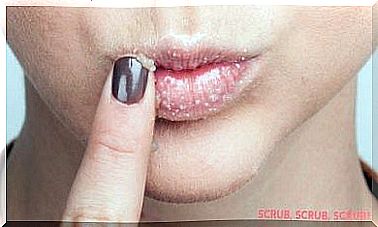Watch Out! 5 Aspects Related To Poor Sleep Hygiene
We call sleep hygiene to control all those behavioral, psychological and environmental factors that prevent us from having a deep and restful sleep.
Although we have all experienced what it is like to spend a few days in which it is impossible for us to sleep in a rested and healing way, there are people who end up suffering from chronic insomnia as a result of certain behaviors related to poor sleep hygiene.
Nor can we forget that not resting, not enjoying a deep and restorative sleep, in turn causes metabolic changes in our body that can lead to more serious diseases. We explain it to you below.
Insomnia affects our physical and emotional health
Our daily behaviors, including emotional ones, can have a major impact on our hours of rest. An example of this would undoubtedly be stress.
All that tension accumulated during the day tends to overexcite our brain, preventing us from reaching those deeper stages of sleep where our mind, our body, rests.
However, let’s see briefly what the consequences of not enjoying proper sleep hygiene tend to be.

If we take into account that we spend about a third of our lives sleeping, we can undoubtedly understand the great importance of providing adequate rest. In case of not getting it, we can experience the following:
- The body is not cleansed or regenerated properly.
- We do not activate the production of certain hormones that promote the recovery of tissues and muscles.
- According to various studies, insomnia decompensates our glucose levels and we run the risk of suffering from diabetes.
- Our memory begins to fail, it is difficult for us to concentrate, to solve problems … It can even change our mood.
- Increased stress from chronic insomnia can increase your risk of heart disease. It’s something to consider.
Factors that determine poor sleep hygiene

1. Go to bed angry or worried
Something that usually happens many times at the level of a couple, for example, is waiting late in the day to talk about those problems or issues that worry or bother us.
- Reaching the pillow after a couple’s argument prevents us from getting a good night’s sleep. The same happens when we make use of this moment when we turn off the light, to “go around” certain complicated events of the day related to work, family, emotions …
- The most appropriate thing is that two hours before going to bed, we have solved or addressed those problems that worry or bother us. We must be aware that the pillow comes rested and light of negative emotions.
It is difficult to achieve, we know, but it must be encouraged.
2. Don’t go to bed hungry or “too full”
- Sometimes we choose not to eat dinner in order to lose weight. Also, and on the opposite side, there are those who make a copious dinner and go to bed just as digestion is taking place. None of this is healthy.
- We have to eat two hours before going to sleep, and dinner should be varied, fair but always nutritious.
- Do not consume alcoholic or exciting drinks, remember also that certain infusions such as tea can activate us. An ideal remedy to relax would be to have a glass of almond milk with honey, delicious.

3. The bedroom must be in semi-darkness and at a temperature between 18º and 22º
A messy bedroom, with a not very pleasant smell and a high room temperature is synonymous with poor sleep hygiene. It will undoubtedly be very difficult to get a good rest.
- The room should be dark or in warm gloom. The smell of lavender, for example, is very relaxing.
- The ideal temperature with which to get a good night’s sleep is between 18 and 22 degrees.
4. Be regular in your habits
Another very classic poor sleep hygiene is to go to sleep at one hour each day and get up at another. Hence, when, for example, we work in several shifts, our physical and emotional health suffers, by altering our circadian rhythms.
- Try, as far as possible, to synchronize your habits with the hours of sunshine. In this way we will regulate the release of melatonin to promote adequate rest.
- Another aspect that we must remember is the one regarding the use of mobile phones, computers, tablets … All this also affects our melatonin, hinders its function and overexcites our brain. The best thing to do would be to close them two hours before going to sleep and pick up a book.
5. Don’t exercise right before going to bed
- Who says physical exercise can also refer to tasks such as cleaning the house, putting washing machines, walking the dog … Anything that involves exercising our body just before going to sleep also implies poor sleep hygiene.
- Try to carry out these tasks at least an hour before going to bed. Once you’re done, take a hot shower, have a glass of warm milk with honey, grab a good book, and release all kinds of worry from your mind.
Rest, sleep, will hug you slowly and deeply.







